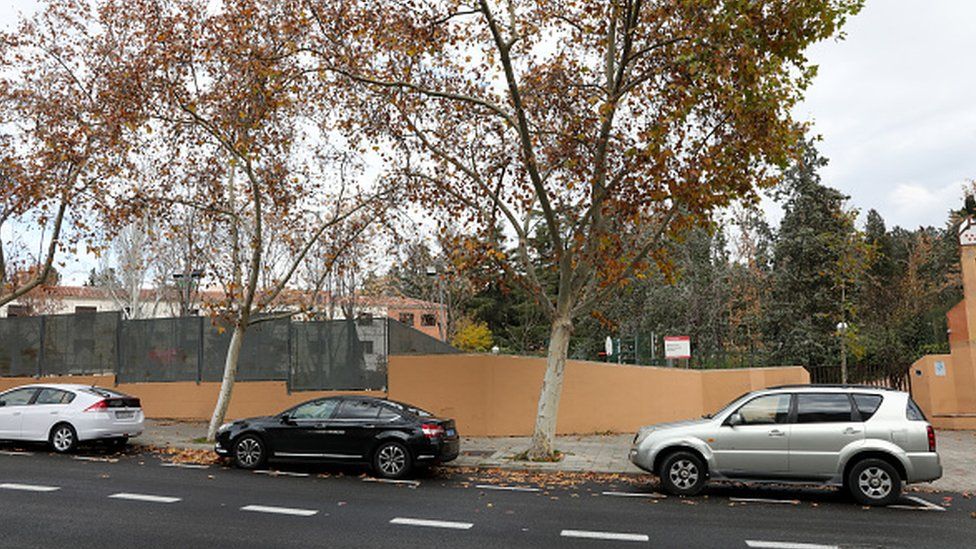Migrant children's centre in Madrid 'targeted in grenade attack'
- Published

A bomb squad in Madrid has safely destroyed a grenade that police believe was thrown over the wall of a migrant centre for children.
The grenade was found on Wednesday morning on the patio of the centre, in the Hortaleza area of Spain's capital.
Police said it was a training grenade that contained a small amount of explosives.
The centre was evacuated while experts carried out a controlled explosion. No injuries were reported.
Dozens of unaccompanied minors, many of them immigrants, are reported to be housed at the residential centre.
Spanish authorities are investigating the incident but police are yet to identify any suspects or establish a motive.
The suspected attack has been widely condemned by Spanish politicians and human rights campaigners, with many linking it to anti-immigrant rhetoric.
"This is what hate speech brings," Adriana Lastra, spokeswoman for the ruling Socialist party, wrote on Twitter (in Spanish). "It needs to be fought online, on the streets and in our institutions."
The centre has been subjected to repeated attacks, most notably in October, when around thirty youths tried to storm in.
What is the background?
In recent months, the centre has been at the heart of a fractious national debate about immigration, and the extent to which it has caused social problems in Spain.
Ahead of Spain's recent general election in November, far-right politicians and groups criticised the centre, linking young migrants to a rise in crime.
During a televised election debate last month, the leader of the far-right Vox party, Santiago Abascal, accused youths at the centre of causing a spike in crime in the surrounding Hortaleza neighbourhood, where he lives.
"I live in a working-class Madrid neighbourhood - Hortaleza," Mr Abascal, well-known for his tough stance on immigration, said.
"And every time I'm on the street - and there's a centre for unaccompanied foreign minors there - I run into women who come and tell me that the police tell them not to wear their jewellery on the street; and mothers who are worried that their daughters are coming home late and are scared of being assaulted."
In November's election, Vox more than doubled its seats to become the country's third most-powerful party. Spain's governing Socialists (PSOE) won the most seats, but fell short of a majority.
What reaction has there been?
Isabel Serra, a member of left-wing party Podemos, called for the Madrid Assembly to support a declaration of condemnation against the suspected attack on the centre in Hortaleza. She linked the suspected attack to "hate speech" and urged authorities to "guarantee the rights of all children in the region".
Speaking to reporters at parliament on Thursday, Ms Serra said Vox and the centre-right People's Party had refused to back the declaration.
Calling on authorities to "combat all hate speech against these children", Amnesty International Spain demanded an urgent investigation into the suspected attack.
Vox has also condemned Wednesday's attack, but accused its opponents of using it for "political ends".
The grenade is believed to have been a military-grade device, Spanish newspaper El Pais reported.
An employee at the centre told the paper that "xenophobia" towards migrants may have played a part in the incident.
"This is the absolute limit, we can't go on working like this," the employee said.
You may also be interested in:
The BBC spoke to some of the illegal migrants living in Spain
- Published11 November 2019
- Published11 November 2019
- Published4 September 2018